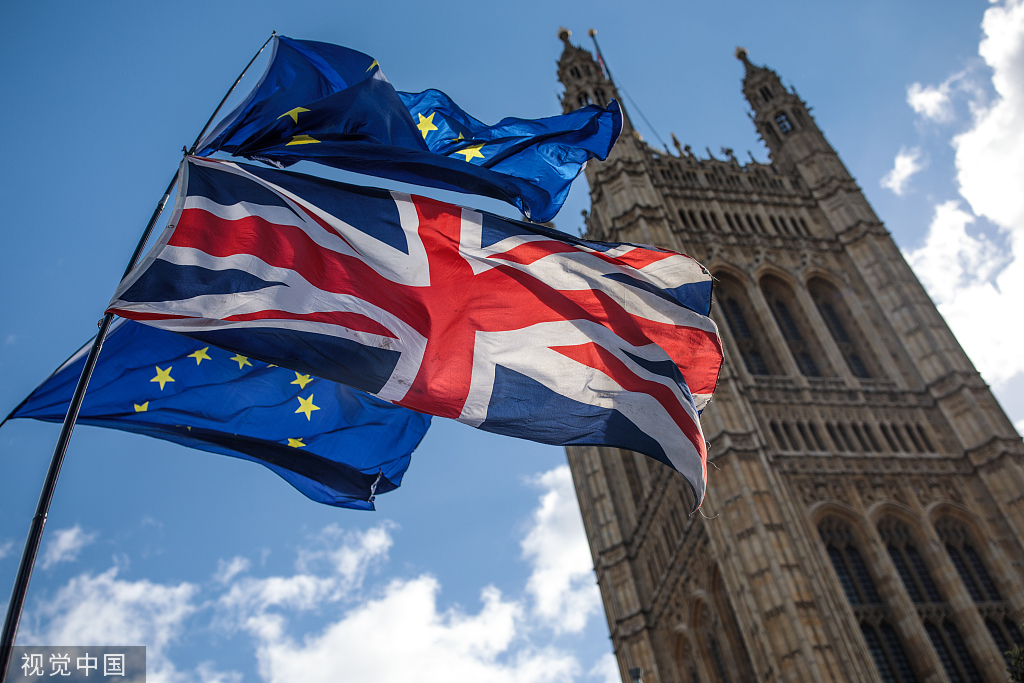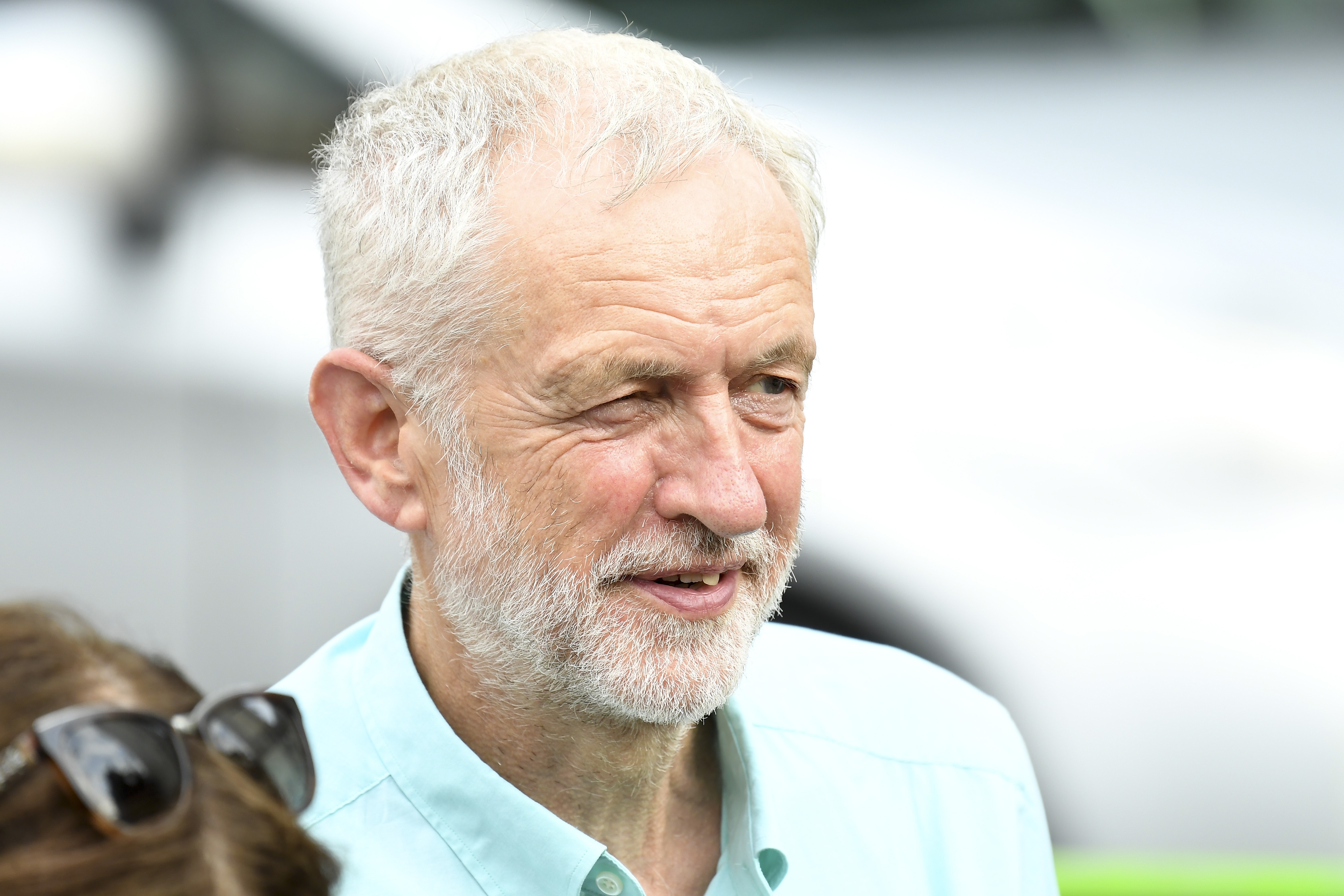Brexit D-Day looms for British parliament
- By Robert Griffiths
 0 Comment(s)
0 Comment(s) Print
Print E-mail China.org.cn, August 22, 2019
E-mail China.org.cn, August 22, 2019

The stage is set for a decisive showdown when Britain's Westminster parliament reconvenes on September 3.
New Prime Minister Boris Johnson has vowed, come-what-may, to take the U.K. out of the European Union on October 31 at expiry of the extension agreed by the EU and in accordance with current British legislation. This, it should be noted, is the fourth such Brexit Day deadline.
Elected in July to lead the country on an uncompromising pro-Brexit platform, Johnson has made clear his willingness to leave the EU without any kind of exit deal if necessary.
He could seek fresh negotiations with the EU to amend his predecessor Theresa May's failed Withdrawal Agreement in an effort to make it acceptable to the House of Commons, but neither side seems willing to compromise.
Deleting the so-called "Irish backstop" that could, in the absence of a trade agreement, subordinate Northern Ireland, and, by extension, the rest of the U.K., to EU Single Market rules ad infinitum would win over recalcitrant pro-Brexit Tory and Ulster unionist MPs, while going too far for less hardline Tories. At the time of writing that is exactly what Johnson is seeking.
However, the EU has been insisting the draft Withdrawal Agreement cannot be renegotiated, even though it has never been ratified and one of the two negotiating sides is now different in complexion.
Many anti-Brexit politicians in Britain, Ireland and the EU claim that the backstop guarantees that never again will be there a "hard border" splitting the island, whatever happens in regard to trading arrangements.
Undoubtedly, a border with customs and security posts would provide a focus for Irish republican "terrorism," re-igniting the violence of the "Troubles" largely laid to rest by the 1998 Good Friday Agreement, and there are already signs this is happening.
However, the London, Belfast and Dublin governments have all sworn never to resurrect any such "hard border." Section 10 of Britain's 2018 EU (Withdrawal) Act outlaws the construction of a border infrastructure by any U.K. authority in the future.
Yet, pro-backstop politicians and EU Commission chief spokesperson Margaritis Schinas insist a no-deal Brexit makes a hard border inevitable. Against this, a report commissioned by the European parliament's constitutional affairs committee, entitled Smart Border 2.0 (2017), argues modern techniques and technology make a no-friction border eminently achievable.

It is also possible the EU might agree to amend the joint Political Declaration that accompanies the Withdrawal Agreement, diluting the commitment to a "backstop" or making it subject to further post-Brexit negotiations.
This would enable Johnson to present a revamped withdrawal package to the House of Commons, where enough MPs might be stampeded by their fear of a no-deal Brexit to approve it.
Alternatively, the government could fall back on the default position already enshrined in British law, namely, automatic exit from the EU on October 31. However, many MPs, including some Tories ready to align themselves with opposition parties, could use procedural maneuvers to stop this happening.
Assisted by the pro-EU Speaker of the Commons John Bercow, they could repeat their success of March, seize control of the parliamentary agenda and rush through legislation to cancel Brexit or approach the EU for another postponement.
The Labor Opposition seems likely to table a vote of "No Confidence" in the Tory government. This would trigger a 14-day period during which anti-Brexit MPs could try to form a so-called "government of national unity" with a view to canceling or delaying Brexit and calling a general election or a second EU referendum.

This, however, is problematic, as many anti-Brexit MPs are deeply divided over whether Labor leader Jeremy Corbyn should take over as Prime Minister: his left-wing, anti-imperialist and anti-EU history putting him "beyond the pale" for many.
On the other hand, a good few Labor MPs understand that backing a non-Labor Prime Minister could prove suicidal, being extremely unpopular among Party activists and supporters.
Then again, Johnson could himself try to call an early election under the Fixed Term Parliament Act. A polling date before October 31 would enable him to go to the electorate as the democrat and patriot who intends to deliver Brexit.
Alternatively, he could try to set a polling day for November, which would mean suspending (or "proroguing") parliament for a period, preventing MPs from blocking Brexit. He could even try proroguing parliament without calling an election.
However, pro-EU Tories such as former Prime Minister John Major are threatening to challenge any prorogation in the Supreme Court, backed by wealthy litigants who have already shown their readiness to take legal action to delay or block Brexit.
The anti-Brexit forces will claim to be defending "parliamentary sovereignty," while many Brexit supporters see prorogation as a necessary tactic to uphold the sovereignty of the people as expressed in the 2016 EU referendum vote to leave the EU.
In any event, time is running out for all the options but the default one of leaving the EU at midnight on October 31. Belated preparations are being made to limit the economic disruption resulting from a no-deal exit.
Robert Griffiths is a former Senior Lecturer in Political Economy and History at the University of Wales and currently the General Secretary of the Communist Party of Britain.
Opinion articles reflect the views of their authors only, not necessarily those of China.org.cn.
If you would like to contribute, please contact us at opinion@china.org.cn.






Go to Forum >>0 Comment(s)